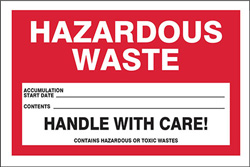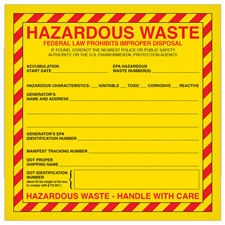| The Home page of ILPI's Safety Data Sheet (SDS) Resource, the leader in SDS information since 1995! | |
| The history and philosophy behind this resource. | |
| A curated collection of books and reference materials concerning Safety Data Sheets and closely related topics. | |
| Paste your plain text SDS into the SDS-Demystifier, and it will be converted into a hypertext-enriched document with links to detailed explanations of each key term. | |
| An extensive list of frequently asked questions about Safety Data Sheets including regulations, content, compliance, and more. | |
| A humorous take on Safety Data Sheet jargon. Fill in the blanks on our entry form to generate a personalized Unsafety Data Sheet to share with your coworkers. | |
| Since 1995, we've maintained this massive curated list of the best places to find Safety Data Sheets on the Internet. | |
| You are here! Way more than a glossary, this hypertext-enhanced resource covers hundreds of SDS-related terms and expert knowledge. Each entry includes both the SDS relevance and links to additional authoritative resources. | |
| Archived results of Safety Data Sheet related polls taken by some of our millions of site visitors | |
| The OSHA regulations behind SDS regulations, including the inspection guidelines and over 400 official interpretations letters under the Hazard Communication Standard | |
| Commercial suppliers of SDS authoring and management software as well as cloud compliance services. | |
| Commercial companies that will create SDS's for your specific needs as well as SDS translation companies. |

Safety signs, banners, and scoreboards? Get yours at Safety Emporium!
Definition

Get your hazardous waste labels from Safety Emporium.
The Resource Conservation and Recovery Act (RCRA) of 1976 gave the U.S. Environmental Protection Agency (EPA) the authority to control hazardous waste from "cradle-to-grave." This includes the generation, transportation, treatment, storage, and disposal of hazardous waste. RCRA also set forth a framework for the management of non-hazardous wastes.
Additional Info
1986 amendments to RCRA enabled EPA to address environmental problems that could result from underground tanks storing petroleum and other hazardous substances. RCRA focuses only on active and future facilities and does not address abandoned or historical sites (see CERCLA).
In 1984, the Hazardous and Solid Waste Amendments (HSWA) were added to RCRA that required phasing out land disposal of hazardous waste. Some of the other mandates of this strict law include increased enforcement authority for EPA, more stringent hazardous waste management standards, and a comprehensive underground storage tank program.
Books Available
NOTE: We may collect a share of sales or other compensation from the links in the following list:
- "The Complete Guide to Hazardous Waste Regulations: RCRA, TSCA, HTMA, EPCRA, and Superfund, 3rd Edition", hardcover, 560 pages, 1999. Estimated price $165.00. Info and/or order.
- "Hazardous Waste Management, Reissue Edition", Hardcover, 1,232 pages, 2010. Estimated price $67.27. Info and/or order .
- "The Law of Hazardous Wastes and Toxic Substances in a Nutshell (Nutshell Series)", Paperback, 640 pages, 2000. Estimated price $33.00. Info and/or order .
- "Basic Hazardous Waste Management, Third Edition", Hardcover, 488 pages, 2001. Estimated price $88.95. Info and/or order .
- "Hazardous Materials and Hazardous Waste Management, 2nd Edition", Hardcover, 488 pages, 1999. Estimated price $133.17. Info and/or order .
- "21st Century Complete Guide to Hazardous Waste Management, Resource Conservation and Recovery Act (RCRA) and EPA Regulations, Hazmat Regulations, DOT Rules" CD-ROM, 2007. Estimated price $25.00. Info and/or order .
SDS Relevance

Get your hazardous waste labels from Safety Emporium.
Some of the information required by RCRA is the same information that is found in a Safety Data Sheet. After all, a hazardous waste is generated after one uses a hazardous chemical. Therefore, one will sometimes find certain RCRA, TSCA and SDS information in the same sources.
Further Reading
- View the U.S. Code, Title 42, Chapter 82 which is the full text of RCRA.
- A summary of RCRA at the U.S. EPA. You can also search the on-line RCRA database and view RCRA Requirements.
- Hazardous Waste Regulations at the US EPA.
- RCRA Update: Latest on Generator Improvements Adoption (2022) at Lion Technology.
- RCRA Recent Changes Or What's New With Haz Waste (2019) at the Retail Industry Leaders Association.
- How and Why Your RCRA Generator Status Can Change at Lion Technology.
- A Guide to RCRA Training at Wastebits.
- Commentary: Where Things Stand with Hazardous Waste Regulation (2009) at Resources For The Future.